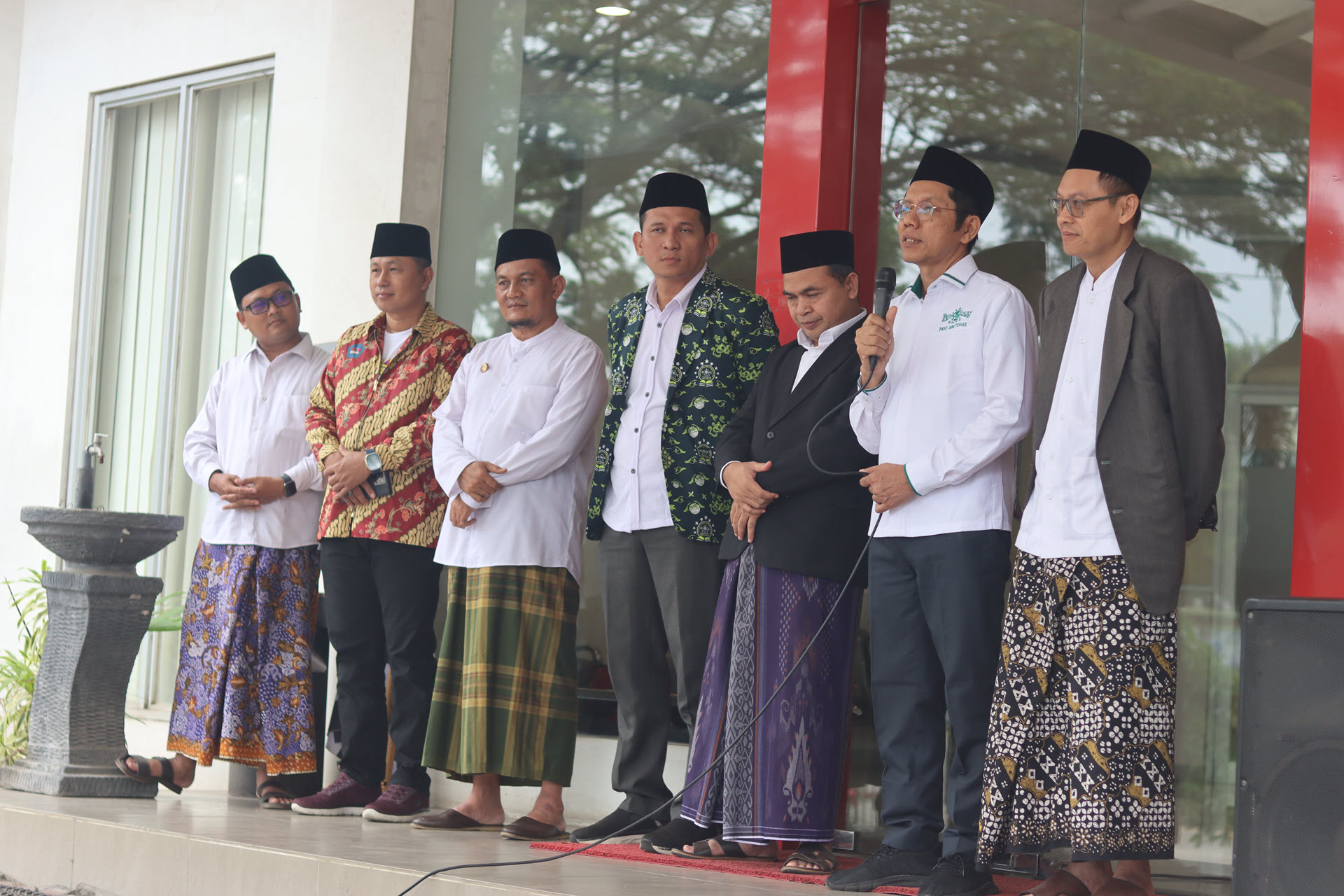
Language, Reflection, and Identity
“Congratulations… forty days, just like when I went on pilgrimage.”
That was how Prof. Hasyim Muhammad opened the second batch of the English Capacity Building for Nahdliyin Educators program. His brief remark carried layers of meaning: a journey not merely physical but also spiritual and intellectual—a migration from linguistic limitation toward reflective self-formation as Nahdliyin educators in an ever-changing world.
The hope behind the statement is profound—that English is not merely a tool of communication but a bridge to a wider horizon, a means for NU teachers to stand as equals, think critically, and articulate ideas for the benefit of the ummah. More deeply, the program represents a collective effort to answer a long-standing challenge: cultivating teachers as reflective practitioners—individuals who do not only teach well but continually learn from the act of teaching itself.
Donald A. Schön’s concept of reflection-in-action proposes that true professional education does not consist in the transfer of technical theories, but in nurturing the capacity to reflect within the very flow of practice. The forty-day immersive training—where English must be used in all daily interactions—embodies that principle. Participants learn not only grammar or pronunciation but how to articulate thought, respond to social dynamics, and create meaning through linguistic experience. They become both learners and experimenters inside a living laboratory.
What LP Ma’arif NU and YPI Nasima Semarang have undertaken implicitly dismantles the old technical rationality that Schön criticized: a mode of teaching that isolates theory from practice and produces rigid professionals. Teachers who once lived within a closed pesantren system are now invited into open, uncertain contexts that demand adaptive reasoning. They move, in Schön’s metaphor, from the high ground of clear problems to the swampy lowlands of complex realities—where genuine learning and creativity take place.
From another perspective, Edgar Faure and the UNESCO Commission in Learning to Be articulated education as the formation of the complete human being. Education must teach not only how to work but how to be. The English Capacity Building program resonates with that vision: it aims not at test scores or TOEFL numbers but at inner transformation. When participants are obliged to communicate solely in English for forty days, they exercise endurance, character, and spiritual discipline. It becomes education as liberation—a process of freeing oneself from internal and structural limitations.
Yet a question arises: does mastery of English risk diluting the Nahdliyin identity? Does it push educators toward a Westernized modernity detached from pesantren roots? Here, Manuel Castells’ insight is indispensable.
In The Power of Identity, Castells shows that identity in the networked world is not a static inheritance but a continuous construction. Progressive identities are forged through engagement, not isolation. The program thus becomes a project identity—a conscious attempt to reconstruct the image of NU teachers as heirs of tradition who are simultaneously creative actors in the global information society. They are not abandoning their heritage; they are expanding it.
Education of this kind operates on three intertwined levels: reflective practice, human wholeness, and dynamic identity. These dimensions are not mere metrics but ethical foundations for assessing whether such programs can generate deep, enduring transformation beyond technical outcomes.
What distinguishes this initiative from an ordinary language course is its social mission. Prof. Hasyim reminded participants that the goal is not only overseas study opportunities but also the ability to teach and empower students in their communities. This echoes Faure’s principle of learning to live together: education as solidarity, collective growth, and social justice rather than individual advancement.
Seen through Schön’s framework, the training approximates a genuine reflective practicum: experiential learning under guidance, space for experimentation, and an ethical commitment to improvement. Through Faure’s lens, it aligns with humanistic and civic ideals. And in Castells’ view, it represents a transformative re-articulation of pesantren identity within the global and digital age—not to tame tradition, but to render it more vital.
If forty days of pilgrimage draw believers closer to God, then forty days of this training should bring teachers nearer to the prophetic mission of education: to liberate minds. Ultimately, language is not merely about accent or grammar but about courage—the courage to speak truth, defend the vulnerable, and love knowledge in all its forms. That is the vocation of every teacher, and especially of the Nahdliyin educator.